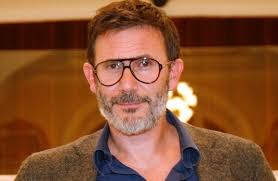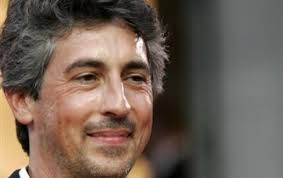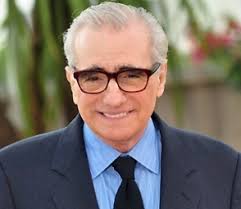Part two of the annual Oscarpalooza is the Best Director category, which this year has its fair share of living legends, including Woody Allen and Martin Scorsese, who move past Steven Spielberg with their seventh nominations in this category each to become the most honored living directors.





BEST DIRECTOR
Michel Hazanavicius, The Artist
In terms of directoral flair, he's the most gimmicky nominee: The Artist is a silent film made with the same lighting, aspect ratio, and film stock as the silents of the 1920s, but managed to sneak in some knowing references and callbacks to that era as well. Don't take my use of "gimmicky" to be a bad thing, though. Hazanavicius has crafted a delightful and charming film that, without any previous knowledge, could very well be mistaken for a long-lost treasure from the silent era. Its clear that he has an intimate knowledge of the language of cinema, and he's used it well to captivate and entertain plenty of audiences. At this point, he's the frontrunner to win, and its easy to see why.
Alexander Payne, The Descendants
Look, I like Payne. And I liked The Descendants. But there was something about this film that felt very distinctly...off. Sure, it had the hallmarks of a Payne film: the mix of organic, character-based comedy and deeply moving drama, the remarkable sense of place, the periphery characters that are just as likely to break your heart as the leads. But it's hard to watch the film and really feel like he was putting his best effort into it. Its still fine work, but compared with some of the other contenders this year (and especially his own filmography), it just wasn't the strongest. Hopefully he'll avoid any more seven-year breaks between films.
Martin Scorsese, Hugo
I don't think any of us here are going to contend the fact that Scorsese is a living legend. But let's also take the time to admit that the man is not without his faults. Hugo is a strange film to me. On the one hand, I love that Scorsese is adventurous enough this late in his career to take on various projects that don't exactly typify a "Martin Scorsese film," such as this family film, a horror film (Shutter Island), and spiritual films (1997's Kundun is very underrated). Knowing Scorsese's personal history, its no surprise he chose this story of a young boy who becomes involved with some of the fathers of cinema. But that's just the thing: he doesn't seem particularly interested in telling that story, instead devoting himself to making a history lesson on the birth of cinema and an advertisement for film preservation. This isn't necessarily a bad thing, but it's never integrated in a way that really works, and instead the film seems to cast story to the side. Scorsese's still doing great work here, but it never lives up to the potential that it could have been, and it's a misfire on his behalf. That said, he's a strong contender to pick up his second Oscar this year.
Woody Allen, Midnight in Paris
There's been a lot of talk about how hit-or-miss Allen's filmography has become, especially in the past decade, but when you're as prolific as he is - turning out one film per year - you're bound to have your share of misfires. But something about Paris brought out some of his best. He's working with some difficult themes here, and he charms you with his 1920s intelligentsia and artistic figures that its actually easy to miss the melancholy underneath: nostalgia is fine, but it can also be detrimental. The same could be said of his career. But this truly is his finest work in several years, and he's been rewarded with his first nomination since 1994's Bullets Over Broadway. He stands a better chance at winning in Original Screenplay, but its always great to see a legend working in fine form again.
Terrence Malick, The Tree of Life
No director this year made a film that matches the scope and ambition of Malick's The Tree of Life. A passion project that he'd supposedly been working on for over 30 years, the film combined recollections of his childhood growing up in Texas in the 1950s with nothing less than the entire history of the universe, all while ruminating on the ideas of nature and spirituality. Malick is more than just a director; he's a cinematic philosopher, and here he meditates on the concepts of Nature and Grace and how they pull all of the universe together. The most remarkable thing about this, though, is how he makes it work (almost) perfectly, creating a near-masterpiece of cinema that will be discussed among film scholars for years to come. He likely won't take home the Oscar Sunday night, but he's the most deserving of these five by a long shot.
My personal ballot:
1. Terrence Malick, The Tree of Life
2. Michel Hazanavicius, The Artist
3. Woody Allen, Midnight in Paris
4. Martin Scorsese, Hugo
5. Alexander Payne, The Descendants
Predicted winner: Michel Hazanavicius
Spoiler: Martin Scorsese
Dark Horse: Woody Allen
Comments